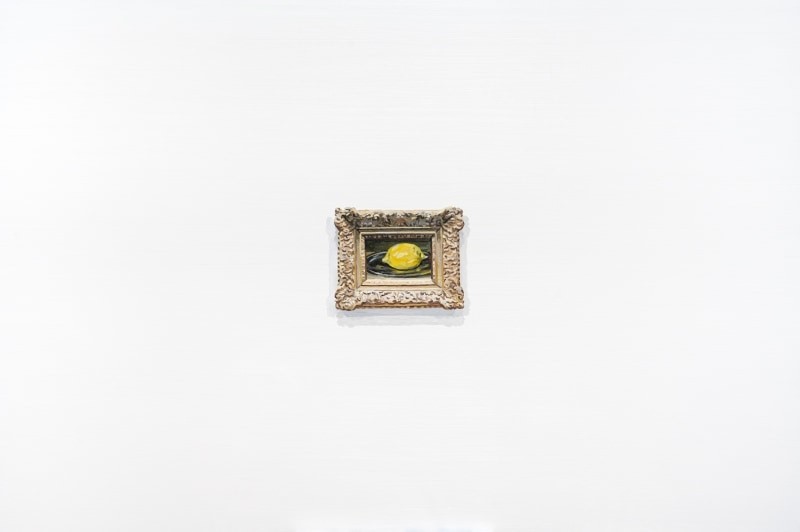
CYNTHIA DAIGNAULT: The Lemon
Night Gallery is pleased to announce The Lemon, an exhibition of new paintings by Cynthia Daignault. This is Daignault’s second solo show with the gallery, following Elegy (2019).
Daignault is a painter of life. She depicts the natural world around her, but also the photographs, documents, and screens that permeate everyday life. On November 23, concurrently with The Lemon, she will debut a new commission of paintings in the group show Ordinary People: Photorealism and the Work of Art since 1968 at The Museum of Contemporary Art (MOCA) Los Angeles, organized by Anna Katz, Senior Curator, with Paula Kroll, Curatorial Assistant. For that show, Daignault presents a monumental 486-panel artwork, Twenty-Six Seconds, that reconsiders each frame of the Zapruder film, the home-movie that captured the assassination of John F. Kennedy in 1963. Both exhibitions continue and deepen Daignault’s interest in history painting, exploring how images and media shape our shared consciousness.
##########
The Lemon takes its name from Le Citron, a still-life of a lemon on a dark plate, painted by Édouard Manet in 1880. I’ve come to feel that the act of painting is like walking in a heavy snow. At times I am by myself. The path is so quiet, cumbersome and lonely. But at other times, I find a line of footprints in the snow and walk for a while inside the indentations of someone else’s shoes. Like this, I accidentally run into other painters when I’m working. I see traces of them in a brushstroke, a color, or an idea. Or I purposefully go after them in copies and allusions, trying to commune with them. In truth, I am rarely alone. Collective consciousness exists outside of time.
The only poster in my bedroom as a young child was Monet’s The Artist's Garden at Vétheuil (1881). I bought the print myself at The National Gallery, and I remember telling people that it was my favorite painting. I was always drawn to French painting, and why years later I took my first painting classes in Paris. As a student, teachers often told me that I shared certain innate sensibilities with Manet—in brushwork and color mixing—and I used to imagine an unbroken thread connecting us. It’s moving to remember that painting is a vocation stretching back to very start of human history. In many ways, this show is an attempt to understand the weight of influence. Of history. Of love. Where does one person ends and another begin? After all, just as ideas and works repeat over time and space, so too with people. Aren’t people all just versions and copies as well?
And what are the boundaries of an artwork—where one begins and another ends? In this age of screens and social media, we often think of a painting as its digital image alone, but the nature of any one work stretches far beyond its four sides. Viewership. Historical context. Scholarship. Provenance. A poster on a bedroom wall. Think about music. When does a song end? Does it end when the track stops, and the needle drags across the diameter of a record label? But what of the echo in your mind? Long after the last note has sounded, the melody carries on for hours, like a wave crossing the ocean toward the shore. And what if you teach it to someone else? Does a song end when the last person on earth who ever heard it dies and passes away? But isn’t it still there in the air itself? A desert wind, blowing across the tops of a few bottles could pick out the melody again, even if there was no one there to hear it. Does a song ever end? Or does it just hover unseen in the air, where it always was and always will be, just waiting to play again one more time before the universe explodes?
—Cynthia Daignault, 2024